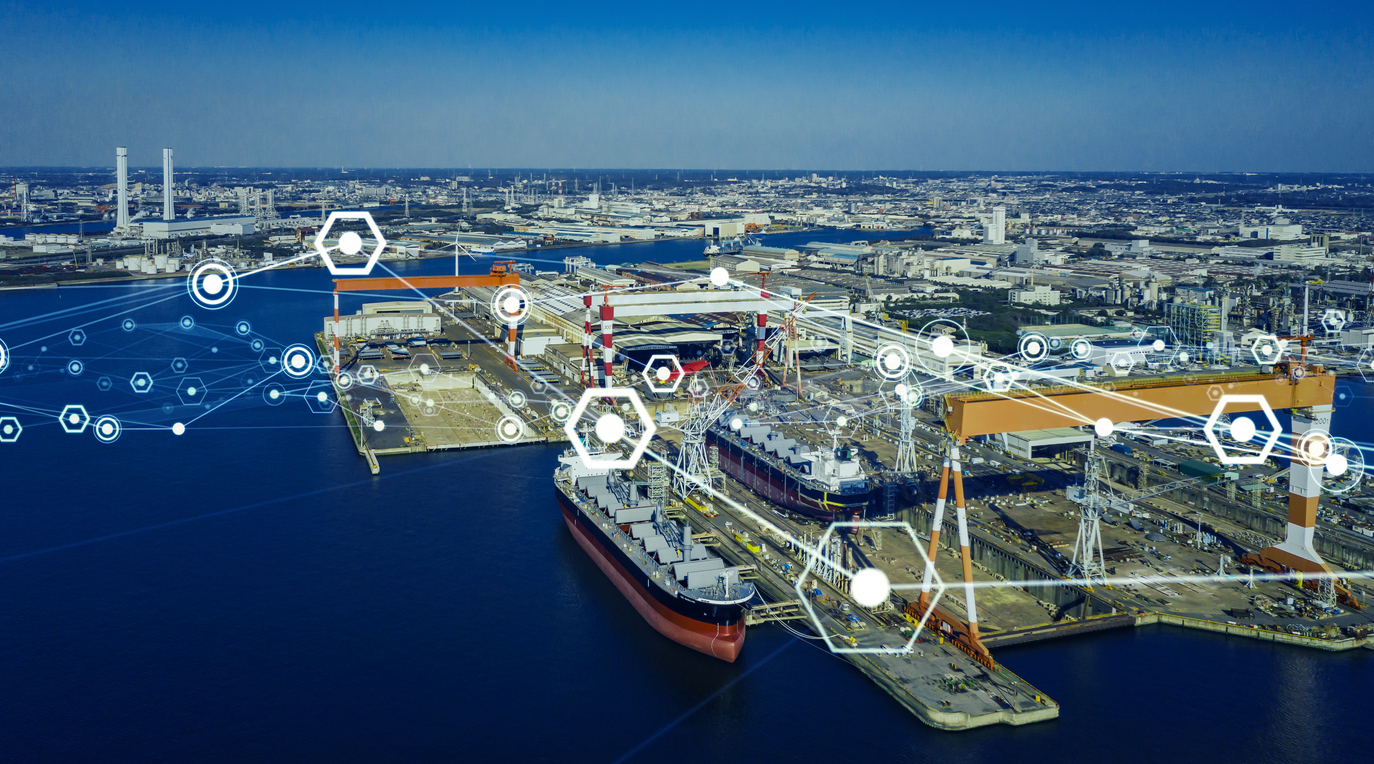Artificial Intelligence (AI) is transforming industries across the globe, and the shipping sector is no exception. From predicting demand to optimizing routes, AI is reshaping how goods are transported, making the process smarter, faster, and more efficient. For businesses, this means new opportunities to reduce costs, enhance service, and stay ahead in a highly competitive market. But what exactly is AI doing in the world of shipping, and how can companies leverage this technology to improve their logistics? Let’s dive into the role of AI in modern shipping and explore how it’s revolutionizing the industry.
AI-Driven Route Optimization: Smarter, Faster Deliveries
One of the most significant ways AI is impacting shipping is through route optimization. Traditional route planning relies on historical data and human intuition, which can be inefficient and prone to errors. AI, however, uses real-time data, machine learning algorithms, and predictive analytics to determine the most efficient routes for delivery vehicles. By factoring in variables like traffic conditions, weather forecasts, and road closures, AI can dynamically adjust routes on the fly, ensuring that goods are delivered as quickly and efficiently as possible.
This level of precision not only reduces fuel consumption and delivery times but also helps companies cut costs and lower their carbon footprint. For businesses looking to improve their shipping operations, investing in AI-powered route optimization software can offer immediate returns. The technology is already being used by leading logistics companies to streamline operations, and it’s rapidly becoming a must-have tool for anyone serious about staying competitive in the modern shipping landscape.
Predictive Analytics: Anticipating Demand and Managing Inventory
Predictive analytics, powered by AI, is another game-changer for shipping. By analyzing vast amounts of historical data, AI can predict future demand with remarkable accuracy, helping businesses plan their inventory and shipping needs accordingly. This means companies can better manage their stock levels, avoid over-ordering or stockouts, and ensure that the right products are available when and where they’re needed.
For shipping, this predictive power translates into more efficient logistics. By anticipating spikes in demand, businesses can adjust their shipping schedules, optimize warehouse operations, and even negotiate better rates with carriers. The result is a more agile supply chain that can respond quickly to market changes, reducing delays and improving overall service quality. In an era where customer expectations are higher than ever, predictive analytics can provide the insights needed to stay one step ahead.
AI and Automation: Streamlining Warehouse Operations
Warehouses are the beating heart of the shipping industry, and AI is playing a crucial role in making them more efficient. From autonomous robots that pick and pack items to AI-driven systems that manage inventory in real-time, automation is transforming warehouse operations. These technologies not only speed up processes but also reduce the risk of errors, ensuring that the right items are shipped to the right place at the right time.
AI-powered automation can also improve safety by taking over dangerous or repetitive tasks, allowing human workers to focus on more strategic activities. For businesses, this means higher productivity, fewer mistakes, and a smoother flow of goods from the warehouse to the customer. As AI continues to evolve, we can expect to see even more innovative solutions that will further enhance warehouse efficiency and reshape how goods are processed and shipped.
Enhancing Security and Reliability with AI
Shipping security is a growing concern, particularly in an era where cyber threats and cargo theft are on the rise. AI is helping businesses enhance security by monitoring shipments in real-time, detecting anomalies, and predicting potential risks before they occur. AI-powered surveillance systems can identify suspicious behavior at ports and warehouses, while advanced tracking solutions can monitor the condition of goods during transit, alerting companies to issues like temperature fluctuations or unauthorized access.
For high-value or sensitive shipments, understanding the benefits of insured package delivery becomes even more critical. While AI can significantly reduce the likelihood of incidents, having insured package delivery ensures that businesses are financially protected in the event of damage, theft, or other unforeseen issues. It’s a safety net that complements the advanced security measures AI provides, offering peace of mind in an increasingly complex shipping environment.
The Future of AI in Shipping: What’s Next?
As AI technology continues to advance, its role in shipping will only grow. We’re already seeing the early stages of AI-driven autonomous vessels and trucks, which promise to further reduce costs, improve efficiency, and minimize human error. AI is also being used to optimize entire supply chains, providing end-to-end visibility and control that was once unimaginable.
For businesses, the challenge is to stay ahead of these technological changes and be ready to adopt AI solutions that can improve their operations. This doesn’t mean overhauling everything overnight—small steps, like integrating AI-powered route optimization or predictive analytics, can make a big difference. The key is to view AI not as a futuristic concept but as a practical tool that’s available today, ready to transform how you ship, manage, and deliver goods.
Embracing AI for a Competitive Edge
The shipping industry is evolving rapidly, and AI is at the forefront of this transformation. From smarter route planning to enhanced security, AI is providing businesses with the tools they need to operate more efficiently and meet the demands of a fast-paced market. Adapting to these changes isn’t just about keeping up—it’s about gaining a competitive edge in an increasingly complex and dynamic industry. The future of shipping is intelligent, interconnected, and driven by AI. Are you ready to get on board? The journey is just beginning.
Keep an eye for more news & updates on DiscoverTribune!




